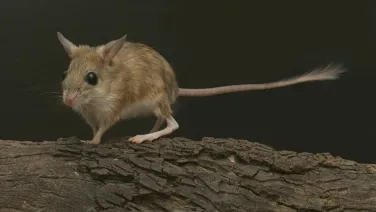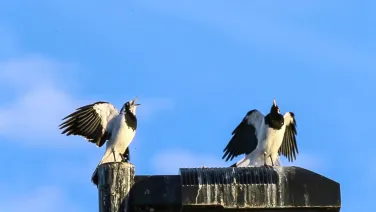News & events
News & events
Find out about our latest news and events.

Spring isn't all it's quacked up to be. Pollen levels are high, magpies are terrorising cyclists and pedestrians alike, and protective duck parents are in attack mode.

Our new research unites genomic sequencing and museum collections to reconstruct the evolutionary tale of native rodents, including many extinct and elusive species – and they have a fascinating origin story.

If swooping season strikes fear into your heart, you're not alone. Fortunately, Dr Chaminda Ratnayake from the ANU Research School of Biology has the intel you need to navigate the great outdoors this spring.

A new study shows Australian magpie-larks may use a ventriloquial illusion to make their vocal duets more threatening.

The raw material for evolution is much more abundant in wild animals than we previously believed, according to new research.

To measure the speed of adaptive evolution in the wild, we studied 19 populations of birds and mammals over several decades. We found they were evolving at twice to four times the speed suggested by earlier work.
Human-crocodile conflict is becoming a conservation challenge worldwide. The saltwater crocodile (Crocodylus porosus) is the largest (>6 m total length, >1000kg) and most aggressive living crocodilian species being responsible for increasing attacks on people and domestic animals in many countries.
Toxins are thought as villains as they cause death and debilitation. In reality, they have contributed more to improving our lives than cause death.

Biodiversity rests on a foundation of adaptive and neutral variation within populations and species, that interact in communities or coexist in assemblages, to define ecosystems that provide habitat and life support services including a stable climate. New technologies span this biodiversity pyramid and allow rapid and

Co-ordinated regulation of chromatin architecture is a major driver of phenotypic diversity, development and disease but we know shockingly little about the evolutionary dynamics of chromatin reorganisation as it has occurred through time.

Cognitive abilities underpin almost every animal behaviour and allow them to gather, store, process, and use information essential for survival and reproduction. Great variation in cognitive abilities exists not only between different species, but even across individuals from the same population.

How do you estimate a good phylogeny? Phylogenetic trees form the backbone of much of our understanding of evolution, so it's important we try to get them right